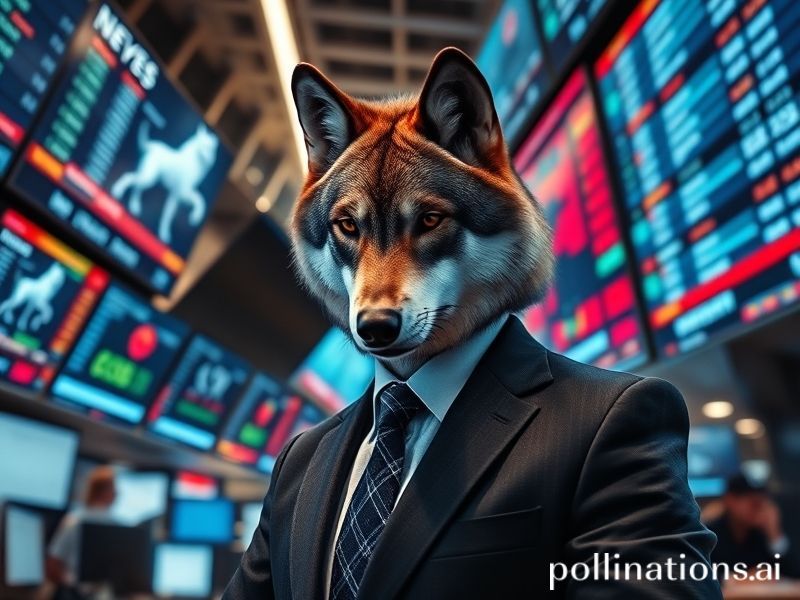Wulf Stock: The Pixelated Wolf Taking Over the Internet, One Meme at a Time
**Wulf Stock: The Meme That’s Dividing the Internet and Conquering the World**
In the vast, unpredictable landscape of internet culture, a new contender has emerged, ready to take on the throne of viral supremacy. Enter Wulf Stock, the meme that’s got everyone from Gen Z to Wall Street buzzing. But what’s the deal with this furry, pixelated figure, and why is it suddenly everywhere? Let’s dive in, shall we?
**The Origin Story: A Wolf in Sheep’s Clothing**
Wulf Stock, a character from the indie game *Dandara*, has been around since 2018, but it’s only recently that he’s become the internet’s favorite wolf. The game’s art style, reminiscent of 16-bit classics, gives Wulf a distinctive, pixelated look that’s both charming and instantly recognizable. But it’s not just his looks that have catapulted him to fame. It’s his *vibe*.
Wulf is a lone wolf (pun intended) with a mysterious aura, often seen smoking a cigarette or standing on a cliff, staring into the distance. He’s the epitome of the “loner with a sad backstory” trope, and the internet has eaten it up. Memes featuring Wulf in various scenarios, from philosophical musings to absurd humor, have taken over social media, with the hashtag #WulfStock amassing millions of views.
**Cultural Context: The Memeification of Gaming**
Wulf’s rise to fame is a testament to the power of memes in shaping internet culture. It’s not just about the character himself; it’s about what he represents. In a world that’s increasingly digital and interconnected, memes have become a universal language, a way for people to communicate, bond, and express themselves.
Wulf’s memeification also highlights the growing influence of gaming culture on the internet. As gaming becomes more mainstream, so do its characters and symbols. Wulf is just the latest in a long line of gaming icons to achieve meme status, joining the ranks of Mario, Pikachu, and Master Chief.
**Social Impact: A Divided Internet**
But not everyone is a fan of Wulf Stock. As with any viral trend, there’s a backlash. Some people find the memes repetitive and overdone, while others argue that Wulf’s “edgy” persona promotes a negative image. There’s also a debate about whether Wulf’s popularity is a genuine appreciation of the character or just another example of internet culture’s obsession with irony and absurdity.
Despite the criticism, Wulf’s impact is undeniable. He’s inspired fan art, music, and even real-life merchandise. He’s been featured in major news outlets, and his memes have been shared by celebrities and influencers. In short, Wulf Stock is a cultural phenomenon, a testament to the power of the internet to turn a pixelated wolf into a global icon.
**Why It Matters: The Power of the Meme**
So, why should you care about Wulf Stock? Because he’s more than just a meme. He’s a symbol of the internet’s creative power, a reminder of how a single image can bring people together, spark conversations, and even shape culture.
Wulf’s rise to fame also raises important questions about the nature of internet culture. In a world where trends come and go at lightning speed, what makes a meme truly resonate? Is it the humor, the relatability, or something else entirely?
As we continue to navigate the ever-changing landscape of the internet, one thing is clear: Wulf Stock is here to stay. Whether you love him or hate him, you can’t deny his impact. So, grab your cigarette, take a stance on that cliff, and join the conversation. After all, in the world of internet culture, every meme has its day.







